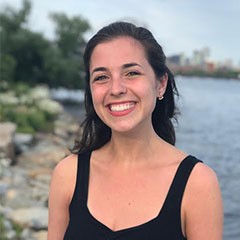 Samantha Goober Samantha Goober '20
Samantha Goober Samantha Goober '20
Samantha Goober
Lynch Graduate School of Education
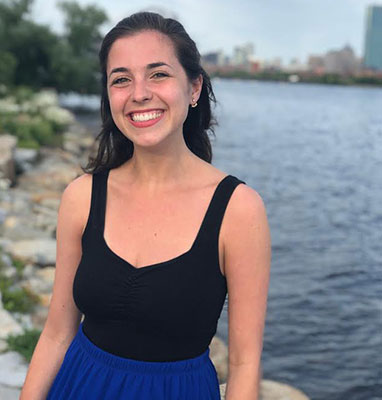
I identify myself as an intersectional feminist because I believe everyone deserves to be treated equally. I’ve seen the ways gender discrimination and other forms of discrimination can be detrimental to a person’s mental, physical, and emotional health, as well as their growth and overall success. To me, intersectional feminism is a no-brainer. A world with such damaging inequality is simply unacceptable.
I identify myself as an intersectional feminist because I believe everyone deserves to be treated equally. I’ve seen the ways gender discrimination and other forms of discrimination can be detrimental to a person’s mental, physical, and emotional health, as well as their growth and overall success. To me, intersectional feminism is a no-brainer. A world with such damaging inequality is simply unacceptable.
I define “feminism” as the belief in social, political, and economic equality for all persons, regardless of gender identity. I define “intersectional feminism” as the belief in social, political, and economic equality for all persons, regardless of gender identity, race, education, ability, religious beliefs, ethnicity, or socioeconomic background.
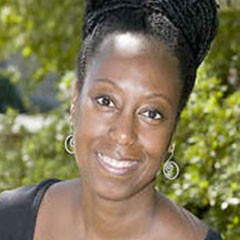 Rhonda Frederick Rhonda Frederick
Rhonda Frederick Rhonda Frederick
Rhonda Frederick
Associate Professor, English
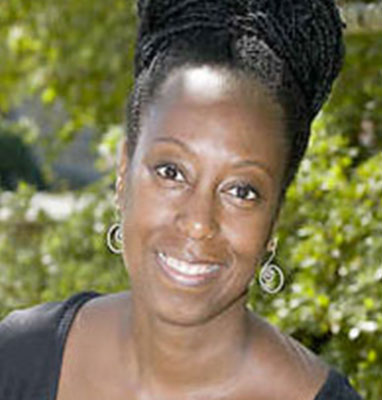
I am a child of women who know/knew how to care of business; these women form the basis of what I know about women’s possibilities and strengths (in and out of adverse situations). I was shocked when I began to meet women who were not as “take charge” as those in my family! “What’s wrong with these women?” I thought. “Why aren’t they handling their business (with regard to work, family, and/or relationships)?” I was practically an adult before I learned about adversities that can prevent women from achieving the authority I saw regularly in my own family.
So, when I think about myself with regard to feminist beliefs and practices, I think about them from this perspective: I’m my mother’s daughter, and my aunts’ niece, my grandmothers’ granddaughter, and my cousins’ cousin. My “feminism,” therefore, means using the knowledge of my matriarchs, “packaging” it, and learning how to share it with others.
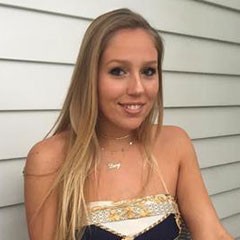 Lucy Kaneb Lucy Kaneb '19
Lucy Kaneb Lucy Kaneb '19
Lucy Kaneb
MCAS '19
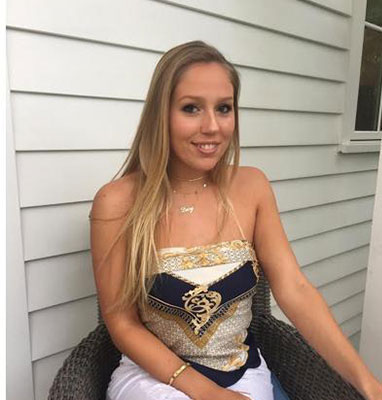
I am a feminist because I’m tired of having to make myself smaller, less intelligent, and less outspoken in order to make society feel comfortable. I love the quotation “I am tired of making myself subtle for the sake of fragile men,” because that’s often how it feels to be living as a woman in society today. My high school was politically progressive and very supportive of women’s and LGBTQ empowerment, so during my 7 years there I got to live in a bubble where women around me were using their positions of power and their voices to make changes, and being applauded for it. When I graduated, though, I vividly remember being warned that once I went to co-ed college, my voice in class would be silenced or undervalued because of my gender, and that I would have to face the terrifying “1 in 5” statistic of college women who are victims of sexual assault during their 4 years on campus.
That’s just not a reality I’m going to accept, and that’s not the message I want my little sister or any young person to receive when entering college. Also, as I learned when I studied American Masculinities, our patriarchal culture doesn’t just disadvantage women – it has very harmful effects on the men in our lives. No one can escape from the effects of sexism, which is why we should all be invested in eliminating it.
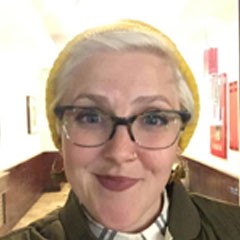 Stephanie C. Edwards Stephanie C. Edwards
Stephanie C. Edwards Stephanie C. Edwards
Stephanie C. Edwards
Theology
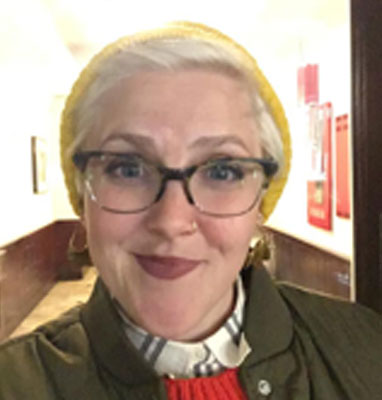
Feminism is a “lens” – a way of seeing the world that recognizes the embedded inequalities in our world, and fights not only to reveal them but to eliminate their sources. Feminism is complex and intersectional, a mode of being and doing that recognizes difference as strength. The lived experiences of women at the root of feminism are not monolithic, and therefore “feminism” is a woven garment of many threads – including a few poking out, some annoying, and overall imperfect. The ongoing co-creation at the center of feminism is what makes it an exciting and hopefully life-giving pursuit. Feminism is a way of naming how I see the operation of power in the world, and the ways I attempt to resist the various resulting oppressions.
Feminism is a way of naming how I see the operation of power in the world, and the ways I attempt to resist the various resulting oppressions. It encourages me (and all feminists who occupy positions of power like myself) to take a posture of humility that inspires sharing, creativity, expression, and innovation – not replication of existing marginalizing structures. This goes hand-in-hand with my personal and professional basis in Catholic Social Teaching, where we seek to follow Jesus’ teachings that condemned those who society valued (e.g. the rich) and instead to model his accompaniment and friendship with “the lowest.”
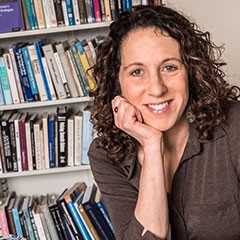 Lisa Goodman Lisa Goodman
Lisa Goodman Lisa Goodman
Lisa Goodman
Professor, Counseling Psychology
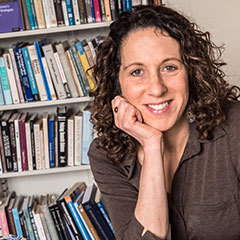
My mother taught me to be a feminist without ever using the word. She cared about her work as a professor, her family, and her own development as a person and managed to balance all of these. As I learned how few women are able to do the same, I awakened to oppression and the need for feminism. And as I continue to learn about the many ways —both obvious and subtle—that people are marginalized, I become more deeply committed to learning, teaching, and practicing feminism in my everyday life.
I define feminism as a way of thinking and acting that promotes justice for all, especially those most marginalized.
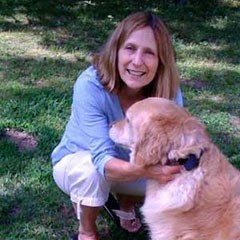 Bonnie Rudner Bonnie Rudner
Bonnie Rudner Bonnie Rudner
Bonnie Rudner
Associate Professor of the Practice
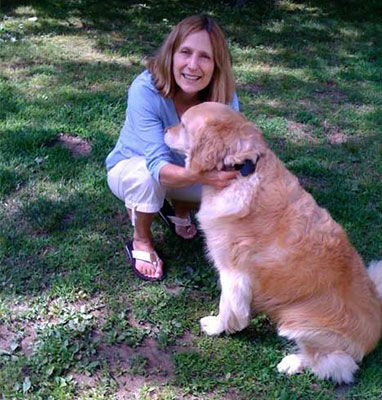
I am originally a “Jersey Girl,” and I take that identity very seriously. I think, in fact, that Jersey girls grow up to be feminists. I believe that feminism means feeling free to rise above, or to go around the usual constraints of gender, without worrying about being seen as “good” all the time.
I try hard to balance my own needs with the needs of people I love. I think feminism has given us the flexibility to make choices. I am inspired by great art, as well as by acts of heroism, large and small, in our world today. I am also inspired by my grandsons and by my students.
 Kristina Major Kristina Major '19
Kristina Major Kristina Major '19
Kristina Major
MCAS 2019
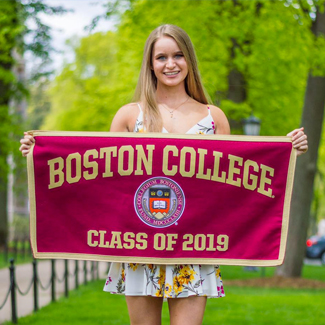
I grew up with an incredible mom who was never afraid to defend herself and her choices, and supported me in all of mine, pushing me to be the best that I could. Additionally, growing up in the dance community surrounded me with powerful, inspirational feminists who prioritized teaching us confidence and compassion with human experience. As a communication and English major with a history minor, many of my classes focus intimately on histories and contemporary examples of oppression and the importance of language and representation associated with feminist movements.
For me, feminism has to be intersectional and accepting of all voices—it can’t exclude the experiences of any groups pushing toward equality, and it also has to be recognized in all of its nuances and complexities. Feminism is about constantly working to better people’s experiences and never being satisfied until the full humanity of women, people of color, and LGBTQ communities are recognized and prioritized.
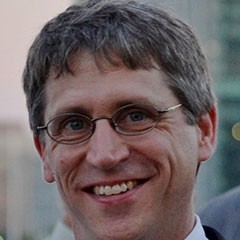 Rick Rossi Rick Rossi
Rick Rossi Rick Rossi
Rick Rossi
Campus Minister
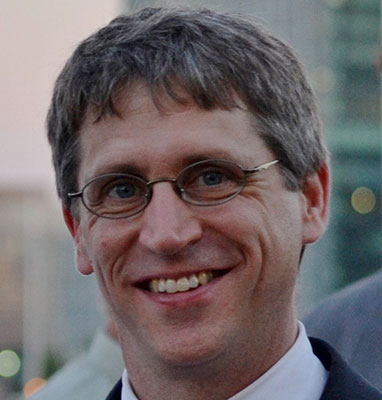
As someone who happens to have been born into just about every category of dominant cultural privilege (identifying as male being first among them), I eventually came to recognize some of the harmful consequences of not acknowledging this privilege. I don’t think I began to accept the pervasiveness of the need for pro-active advocacy with regard to gender— and my own role in it—until noticing a connection between my participation in BC’s Sexual Assault Network, my commitment to a liberation-focused understanding of Christianity, and a recognition of the many personal connections I had with gender-based oppression, discrimination, and violence. I see now that if I want to count myself as a genuine follower of Jesus, I can’t not be a “feminist”.
I define “feminism” as the recognition and advocacy of the full human dignity of women. In our contemporary context, I see this notion as situated in the sad reality of a cultural and global misappropriation of power relative to gender. I understand “feminism” to be one interconnected part of a vision of the way the world needs to be, and is not yet.
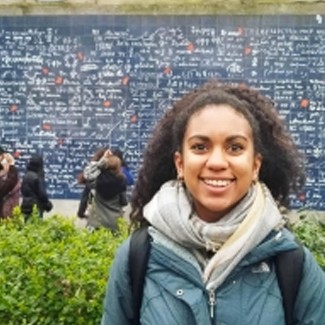 Savannah Clarke Savannah Clarke '19
Savannah Clarke Savannah Clarke '19
Savannah Clarke
MCAS 2019

Feminism is the belief of fundamental equality between women, non-binary folks, and men. In its true form, I think that feminism is intersectional and benefits all people in a society by championing equity and dismantling unequal systems, so that we all can flourish. I am a feminist because I believe in respect and equality for all genders. I am a feminist because I am a woman, a friend, a daughter, and a believer in equality for all. I am a
feminist not because I hate men (or anybody at all), but because I love people and believe that love and equality are imperative to building a just society. I do not think that gender should be a hindrance to a person’s potential for realizing their dreams, and in some places, it still is.
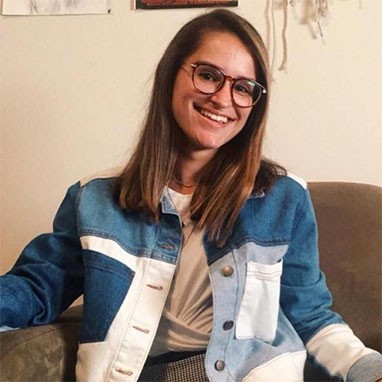 Alexandra Abreu Alexandra Abreu
Alexandra Abreu Alexandra Abreu
Alexandra Abreu
Resident Director, Office of Residential Life

I’m Alexandra and I’m from Bristol, Rhode Island. I went to the University of Richmond for undergrad and James Madison University for my M.Ed. in College Student Personnel Administration. I’m currently working as the RD of Keyes Hall over on Newton campus. I love music, collecting vinyl records, and going to concerts! I attended Newport Folk Festival this summer and it continues to be the only thing I talk about. I’m also a big sister and share a love for competitive dance (yes, we still watch Dance Moms and yes, it is the worst) with my two younger sisters. If you see me around campus, please say hello! :)
I define feminism as Gloria Steinem would but with one, slight edit: “A feminist is anyone who recognizes the equality and full humanity of women, men, (and all gender identities).” Feminism allows all individuals to dream big and strive for their greatest goals. It is giving a platform to voices that are silenced. Feminism requires all of us to do what we can within our own sphere of influence to ensure equality amongst all regardless of their gender identity.
When I was a senior in college, I spoke at orientation about my experiences of sexual violence on campus. A few days later, a first-year woman came up to me and shared her own story with me. That’s why I identify as a feminist. It is my duty to help those around me who are struggling and use my privileges for good. I’m a feminist because I want a better world for my younger sisters, the folks I care about, and all the individuals I’ll never meet but who are so deserving of equality, respect, and love.
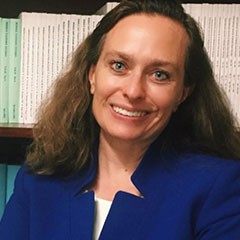 Natana DeLong-Bas Natana DeLong-Bas
Natana DeLong-Bas Natana DeLong-Bas
Natana DeLong-Bas
Associate Professor of the Practice
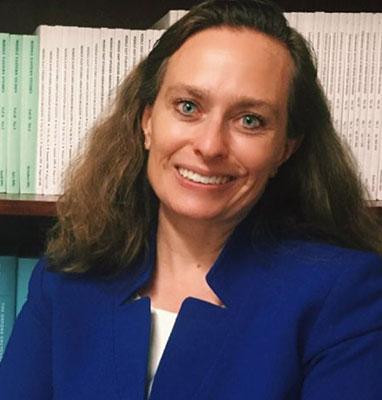
I define “feminism” as “egalitarianism” in every sense of the word. Gender is often used as a construct to set limitations on one group of people while giving power to another - a structure that clearly promotes injustice and suggests that gender roles have far more to do with power claims than they do with “inherent” qualities specific to a given sex. Promoting justice requires recognizing those structures and working to change them with the goal of achieving equality, not preference for one group over another. “Feminism” isn’t just a “women’s issue.” It is everyone’s issue. We all have female family members and men are often as oppressed by gender roles and expectations as women are.
My parents taught me that people should be judged on the basis of their merit and their character, not their sex, skin color, ethnic background, etc. I think that society encourages us to spend too much time cutting ourselves off from other people through constant labeling and pushing us to differentiate ourselves by thinking about what we are as compared to what other people are not. We are constantly asked to box ourselves in with respect to race, ethnicity, citizenship status, gender, etc. I encourage people to liberate their own minds of divisions and learn to look at people as people, rather than labels or categories. It’s who we are inside and what we choose to do with our lives that matters, not outward appearances.
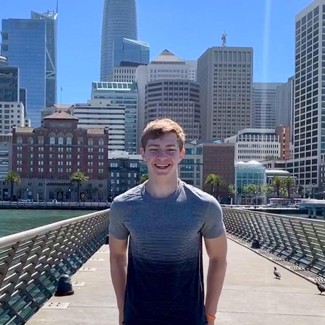 Noah Jussila Noah Jussila '20
Noah Jussila Noah Jussila '20
Noah Jussila
MCAS 2020
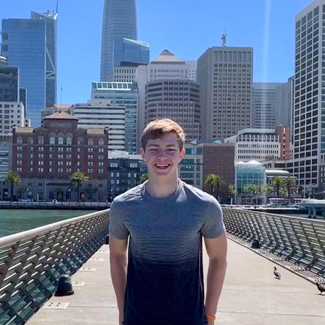
I’ve always thought that feminism is looking to women as a source of inspiration, empowerment, and knowledge. I Identify as a feminist because the role women have played in my life. I was raised by a single mom, and the overwhelming majority of my close friends have been, and are, women. If it weren’t for these strong, intellectual, honest, and badass women in my life, I would be a fraction of the person I am today.
I believe everyone should have equal opportunities allotted to them in higher education, regardless of gender, race, ethnicity, citizenship, sexuality, gender identity, or socioeconomic status.
 Régine Michelle Jean-Charles Régine Michelle Jean-Charles
Régine Michelle Jean-Charles Régine Michelle Jean-Charles
Régine Michelle Jean-Charles
Associate Professor of French, Graduate Program Director

I have two favorite definitions: 1. From bell hooks “Feminism is a movement to end sexism, sexist exploitation, and oppression [and to challenge patriarchy” 2. From Chimamanda Ngozi Adichie: “A man or a woman who says yes there is a problem with gender as it is today and we must fix it.” I remember hearing Gloria Steinem speak when I was in college and she said “as a woman either you are a feminist or you are a masochist” and I love that because it simplifies everything…as a woman why wouldn’t you want to be equal? Why wouldn’t you wan tto end the patriarchy?
I identify as a feminist because as a woman I cannot afford not to. Because as a parent of both SONS and DAUGHTERS I believe in a feminist world that makes everyone more free and the world more just.
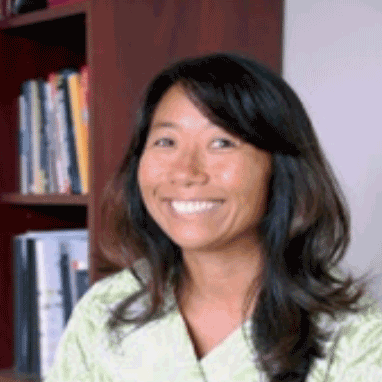 Sarah Hood Sarah Hood
Sarah Hood Sarah Hood
Sarah Hood
Department: School of Social Work
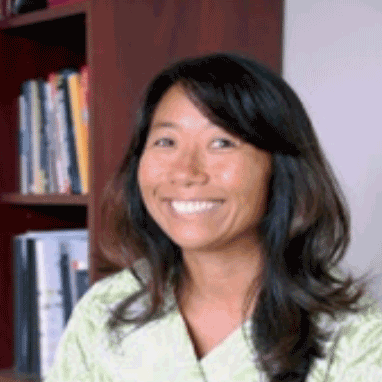
I don’t have your typical beginning… I was found on a train in Seoul Korea when I was 18 months old, with only the clothes that I was wearing. I lived in an orphanage for a year and a half and was adopted at about 3.5. I had no birthday, therefore the orphanage assigned me a date, so I don’t actually know for sure how old I am. (I like to think I’m a lot younger then they guessed) I was adopted into a family that already had two girls. My parents adopted me to place me in between my sisters, so just like that, I grew up as a middle child. My mother was Irish Catholic and my father was Russian Jewish. I grew up in Newton, MA, Catholic but also deeply rooted in my father’s Jewish Faith.
I received my undergraduate degree from Boston College in 1991 and received my Masters in Social Work from BC as well. I now work in the School of Social Work here, so it is safe to assume that I like Boston College Very Much.
As a woman, I define Feminism as persistently pursuing a seat at the table for me and my peers.
I believe that standing with my fellow sisters to form community and establish a place of belonging is necessary towards having our voices heard and in turn, makes our society a better place.
 Samantha Gordon Samantha Gordon
Samantha Gordon Samantha Gordon
Samantha Gordon
Residential Life
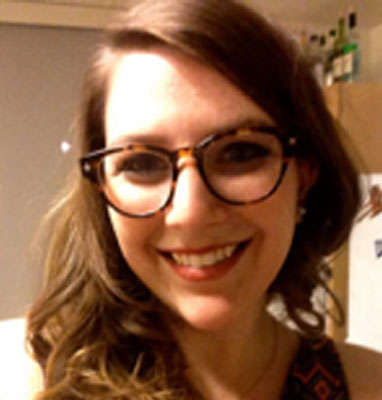
To quote the amazing Sam Killerman “Feminism is a collection of movements and ideologies that share a common goal: to define, establish, and achieve equal political, economic, cultural, personal, and social rights for women. Feminism, down to its absolute core, is about gender equity. The goal of feminism is to create a society in which individuals’ genders don’t restrict them from an equitable shot at success and happiness. Feminism asks both men and women to critically think about those normalized behavior and its impact, and holds people accountable to sexist thinking and behavior even if they didn’t initially realize it was sexist.”
I am a feminist because I believe that people should have equitable places in society regardless of their gender. Period. End of Discussion.
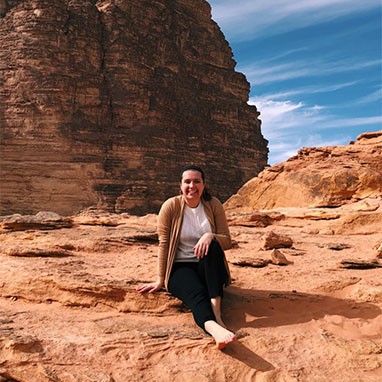 Elizabeth Wollan Elizabeth Wollan
Elizabeth Wollan Elizabeth Wollan
Elizabeth Wollan
MCAS 2019

I am a green-tea drinking, bright-color-cardigan-wearing, West-Wing-watching, veggie-eating, globe-trotting, music-making, podcast-loving lady—in short, I’m a powerhouse in progress. I love making every day an adventure, I am really trying to keep a plant alive for more than three weeks, and I am heavily addicted to the Trader Joe’s Dark Chocolate Peanut Butter cups. I come from a wonderful big family and am a very community-oriented person. There is a phrase that says “it takes a village to raise a child,” but I think God saw I’d be a little extra handful, so I’ve been incredibly lucky to grow within the care of some remarkable communities of people who respect, challenge, and cherish me. It’s been a really exciting four years of self-discovery and falling in love with the person I am becoming, thanks in great part to the communities that have built me.
Feminism is a prerequisite to personhood. It is nuanced and complex yet so fundamentally simple—it is promoting justice and actively dismantling systems of oppression and marginalization that limit people of all genders. Regardless of gender identity, sexual orientation, religion, race, ethnicity, ability, or any other element of one’s identity, feminism liberates us all to be who we are and be that fully and completely well in both public and private spaces. Feminism must be a space of collaborative growth, in which elements of power and privilege are recognized and wielded to empower, champion and actively dismantle systems of oppression and injustice.
I identify myself as a feminist because I believe in the inherent dignity, necessary respect for, and equality of all genders. As a Christian, a woman, a friend, a daughter, a sister, a person, I find tremendous power in the space of collaborative growth that feminism invites us all into—a space of equality, equity, and acceptance. I also see no other way to be—being a feminist is like breathing. You like equality? Welcome, you’re a feminist—take a seat, enjoy the party.